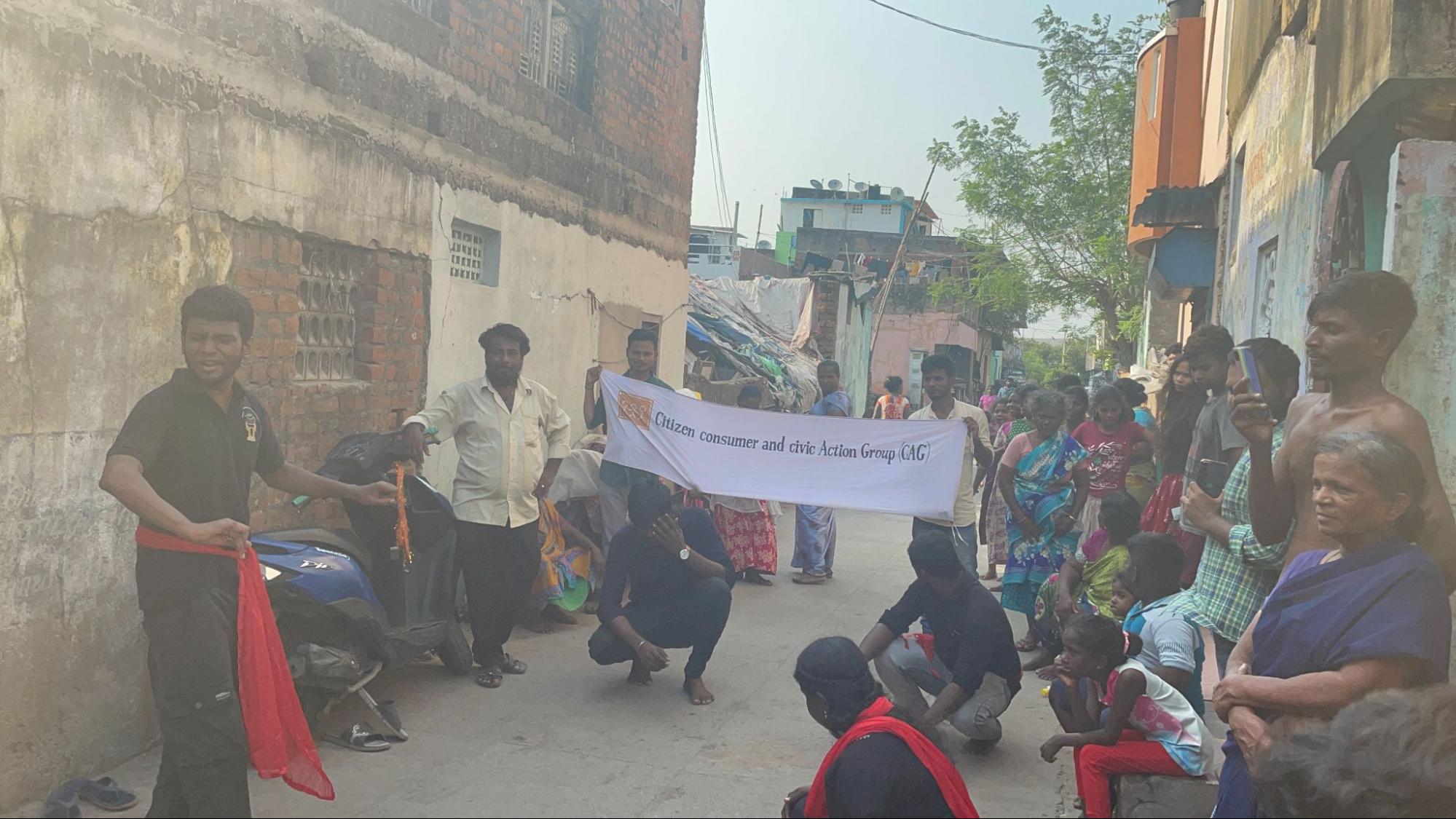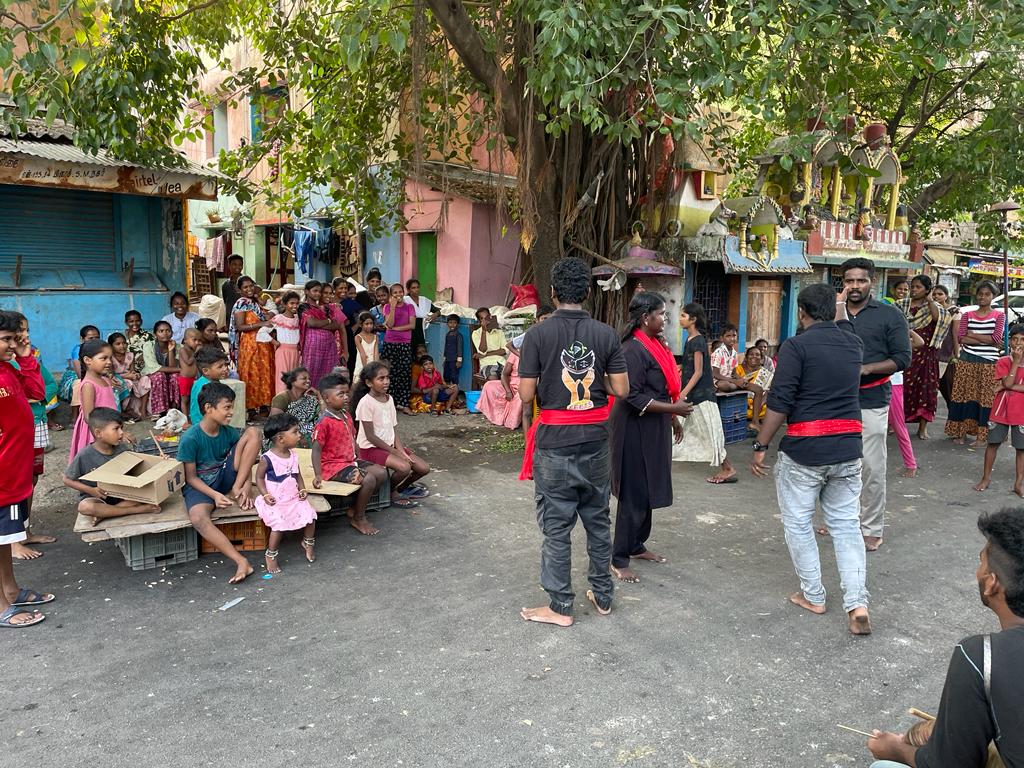The unprecedented growth of our cities over the past decade has increased the number of vehicles, especially private motor vehicles, on our roads. This has had serious, adverse consequences on our roads and society. Tamil Nadu has long been foremost in road crashes and casualties. The Ministry of Road Transport and Highways’ (MoRTH) annual report, Road Accidents in India 2021-2022, saw Tamil Nadu lead the country in the number of road crashes on National Highways, as well as being second in the number of fatalities. This is a needless loss of lives and a blight on the state’s reputation.
The United Nations Global Road Safety Week is held every two years to highlight road safety issues. This year the theme was Rethink Mobility, connecting the idea that switching to sustainable mobility (walking, cycling, public transport) also has a positive impact on road safety. CAG hosted a webinar and street plays on road safety on the occasion to highlight and raise awareness about road safety. On May 20, 2023, a webinar titled "Rethinking Mobility and Road Safety in Tamil Nadu" was held. Participants included college students and members of civil society. The speakers for the webinar were Dr. K.P. Subramanian, a former professor at the School of Architecture and Planning, Anna University; Ranjit Gadgil, Program Director of the civil society organisation, Parisar, Pune; and Felix John, the Bicycle Mayor of Chennai.
Divya Arvind, a CAG researcher, began by providing a brief overview of the road safety scenario. Following that, Dr. K.P. Subramanian spoke about various aspects of road safety and some of the major causes of road crashes in Chennai. Ranjit Gadgil then went into detail about speeding, which is one of the leading causes of crashes. He also explained the science behind speeding and its effect on drivers. Rounding up the conversation, Felix John expanded on how shifting to more sustainable modes of transportation will aid in resolving several of these issues. We can reduce the number of motorised vehicles on the road by encouraging non-motorised transportation and walking. The number of crashes caused by motor vehicles on the roads will also naturally decrease. A Q&A session was held at the end of the webinar, and some interesting questions were raised by participants. A participant\ asked, "Do you think weather has been a major factor preventing people from cycling in our cities?" Felix John responded that we don’t have to cycle all the time in every weather. Instead we should start with small trips - local errands - for which we walk/cycle instead of taking our car/bike. Elaborating on this, Ranjit Gadgil added, “People say we don't need cycle tracks because our weather is not conducive but these are not connected. Cycle tracks are needed for the safety of cyclists. It doesn't matter if there is only one cyclist; everybody should be safe. Weather-wise, people have been cycling in India for years. Only in recent times, this has changed due to how cities have evolved. Even now there are many who cycle because they don't have an option. We need to understand our weather, and build infrastructure to suit - more tree cover for pedestrians, cyclists. Even in The Netherlands, the weather is cold and damp so it's not fun to cycle”.
Another participant inquired, "There is a strong push toward motor vehicles. Why aren't we addressing this issue at its root?". Felix John said, “Restricting car production/sales is extremely difficult. There are other social and political pushes that support this and restrictions will not be accepted easily”. Ranjit Gadgil noted that car ownership in India is still quite low compared to other countries such as The Netherlands. The message should be that you can buy a car but it's going to be more convenient, safer, easier if you cycle/walk/ use public transport. So cities like London arent restricting car ownership but making it more difficult to use the car for everything through parking costs, etc while at the same time providing better walk/cycle/public transit options. This is a more practical approach, he said.
On 21st May, 2023, street plays were conducted in North Chennai’s Kannigapuram and near P1 police station signal. A 15 minutes street play was performed by artists of FEETS from Vyasarpadi. Audience for the street play included people of all ages from the neighbourhood. The street play spoke of the importance of following road rules, the risks of speeding, the need to respect all road users, as well as the need for helmet and seatbelt compliance. In addition, the street play highlighted the increase in road crashes and ways to prevent such crashes. Overall, the street play was well received by the audience in both the locations.

Figure 1: Street play performed by FEETS group near P1 police station.

Figure 2: Street play performed by FEETS group in Kannigapuram.